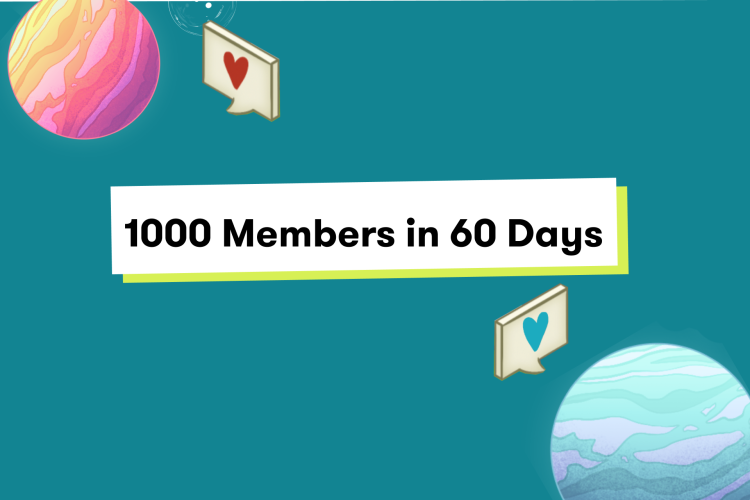Communities & Memberships
How to Monetize a Community Like a Boss (2025)
Knowing how to monetize a community can be a challenge. We’re here to help you figure it out.
Author
Mighty Team
Last Updated
August 29, 2025

Whether you have built an online community before or you’re just starting out, you’ll find out that learning how to monetize your community can be challenging. After all, monetizing your community is more than simply asking members for money. It's about building a business around your membership.
In this article, we'll teach you why you should monetize your community, and some of the best ways to do it.
If you want more support in building and monetizing your online community, come join OUR Mighty Community for free and meet other new and established community owners! We’d love to meet you. Join for free!
Why you need to monetize your community
Here are some of the reasons you should monetize a community.
Because Hosting is work: At the most basic level, you should monetize your community because what you’re doing is work. Bringing together people around a shared interest is no small task. And you should be compensated for it.
Stable revenue: Online communities are a business in their own right, and Hosts who monetize can unlock predictable revenue--which is amazing for any brand or creator.
Build your brand: Communities built around brands create loyalty and connection, but they also boost revenue and rentention.
Get results: It's not a cliché. Our data shows that people value what they pay for. Paying members are engaged members and engaged members get results.
Provide products and services people need: Monetization isn't just about you. Remember, your customers look for physical and digital products and services from brands and creators they trust.
Boost engagement: Engagement on social media is pitiful. Paid communities can be amazing for engagement and set you free from fighting algorithms.
More privacy and security: By having a monetized online community separate from platforms like Facebook, you’ll allow your members to come into your community fresh without distractions.
Communities are more profitable: Our numbers don't lie (and we'll get into them below). Communities are ridiculously profitable business models.
Our creators calculator can help to calculate potential earnings for some of the most common ways to monetize a following.
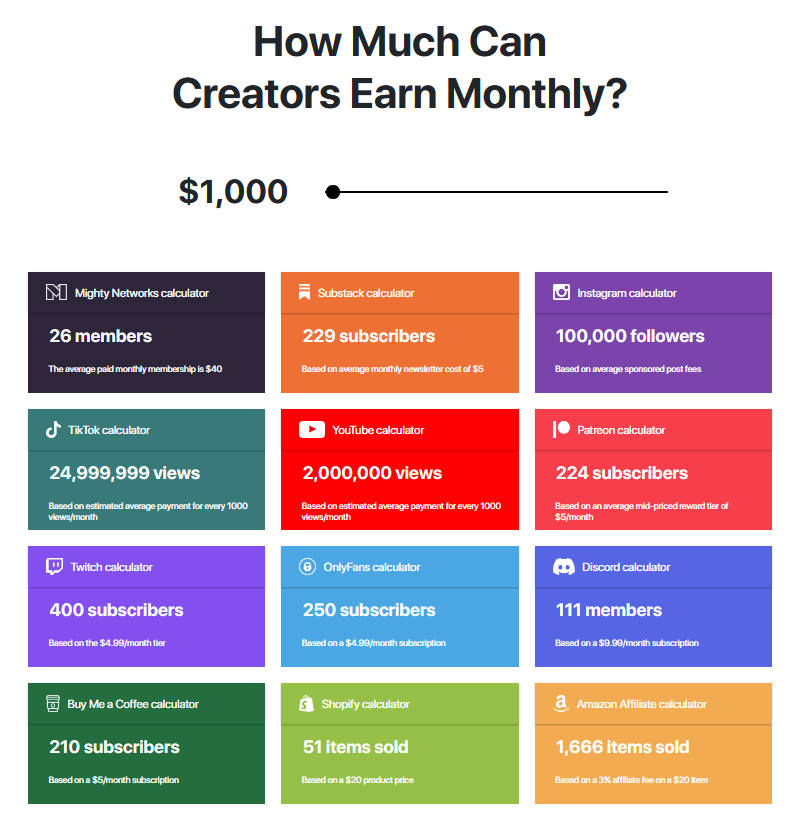
Try Our Community Name Generator
Our AI engine is here to help you create a community name that feels like magic. Just share a few words about who your community is for and we’ll get to work.
Examples: coaching clients, meditation novices, vegan chefs, dog lovers, aspiring entrepreneurs, etc.
The names generated by Mighty Co-Host™ are examples only and may be used by other businesses or subject to third-party rights. For more information, check our Terms
The community flywheel business
We've seen community business work, and work well. In fact, many communities are pulling in 6-, 7- and even 8-figures in revenue.
In a 2022 report, McKinsey named "community" the marketing "big idea" for the 2020s.
They found that 75% of the brand content in communities is user-generated AND that communities unlock a ton of different revenue. Their success is largely due to the community flywheel effect.
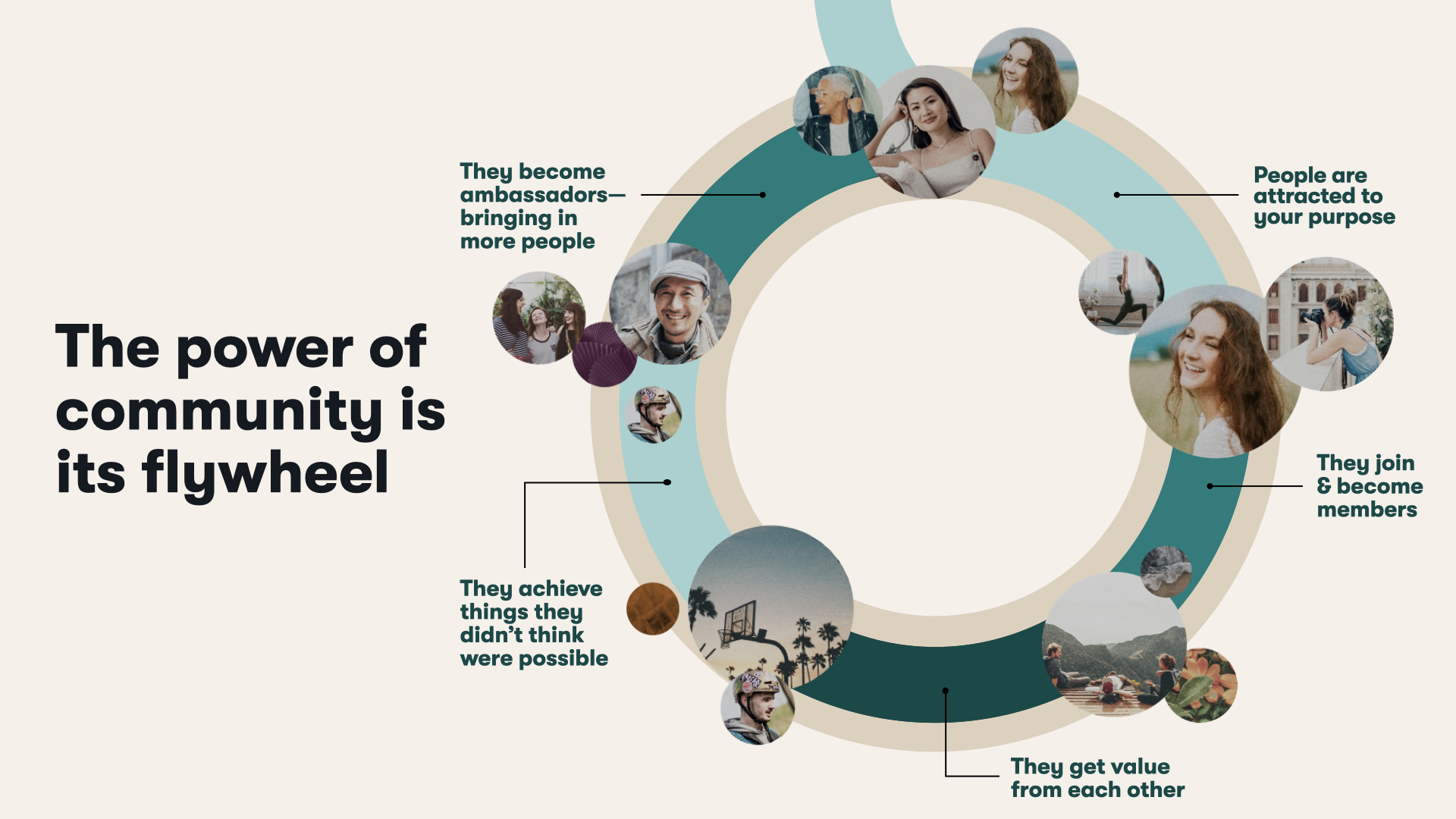
When we dig into our own data on communities, here are some of the astonishing statistics we see:
Paying communities charge $48/mo on average. If you're keeping score, that means a community with 1,000 members is driving $48,000 A MONTH in revenue!
But paid communities don't just earn from membership fees. 90% of networks with a monthly fee are earning on top of the membership fee: through things like courses, live events, coaching, or premium groups.
Of our premium Mighty Pro networks, some are selling high-ticket experiences of up to $500 per member.
Here are some examples of wins we've seen:
A health brand launched a high-ticket offer and 100 members bought--adding $40,000 in recurring revenue.
One author saw an additional $30,000 in revenue from a 4-week promotion.
A podcaster and author sold $4.98 million in high-ticket course sales in 10 days.
One community launched an add-on course and it brought in an extra $100k in 2 months.
Communities small and large drive revenue... lots of revenue, in a lot of different ways. Here’s how you can build your own community flywheel.
How to monetize a community
When you take the time to figure out how to monetize your community you’ll realize there are many different approaches you can take.
We’ve compiled a list of ideas that you can experiment with to see what works best for you.
1. Sell paid memberships
There's no question, communities are paid membership powerhouses. You can create special offers, private groups or mega forums--all behind a paywall that people pay to join.
As we said above, the average membership fee on Mighty is $48.
Let's do the math here:
10 members = $480/mo
100 members = $4,800/mo
1,000 members = $48,000/mo
You can see why membership sites alone can be incredibly lucrative, and can work as a great side hustle or a million-dollar business.
Creating a membership helps you move beyond trying to get a "following" and lets you build a business around "belonging."
You can mix memberships with any of the other goodies below, but there's a reason memberships are the tried and true method for monetizing anything from a service business to an audience.
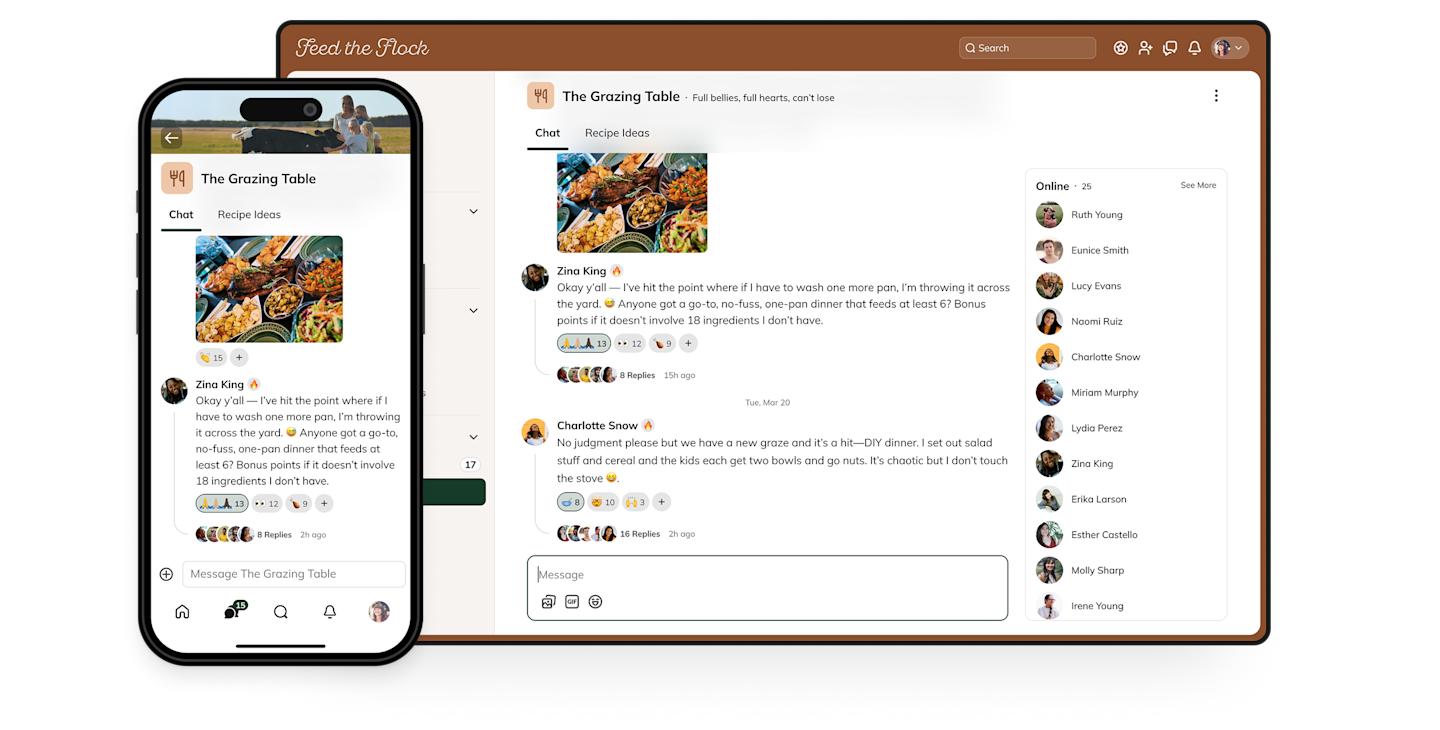
Advantages to memberships
Create a monthly recurring revenue business.
Incredibly scalable; it doesn't take much more work to serve 10,000 members than 100.
Growth makes the community more valuable with the network effect. Each new member brings new ideas and shares their experience and creates content.
2. Offer live courses
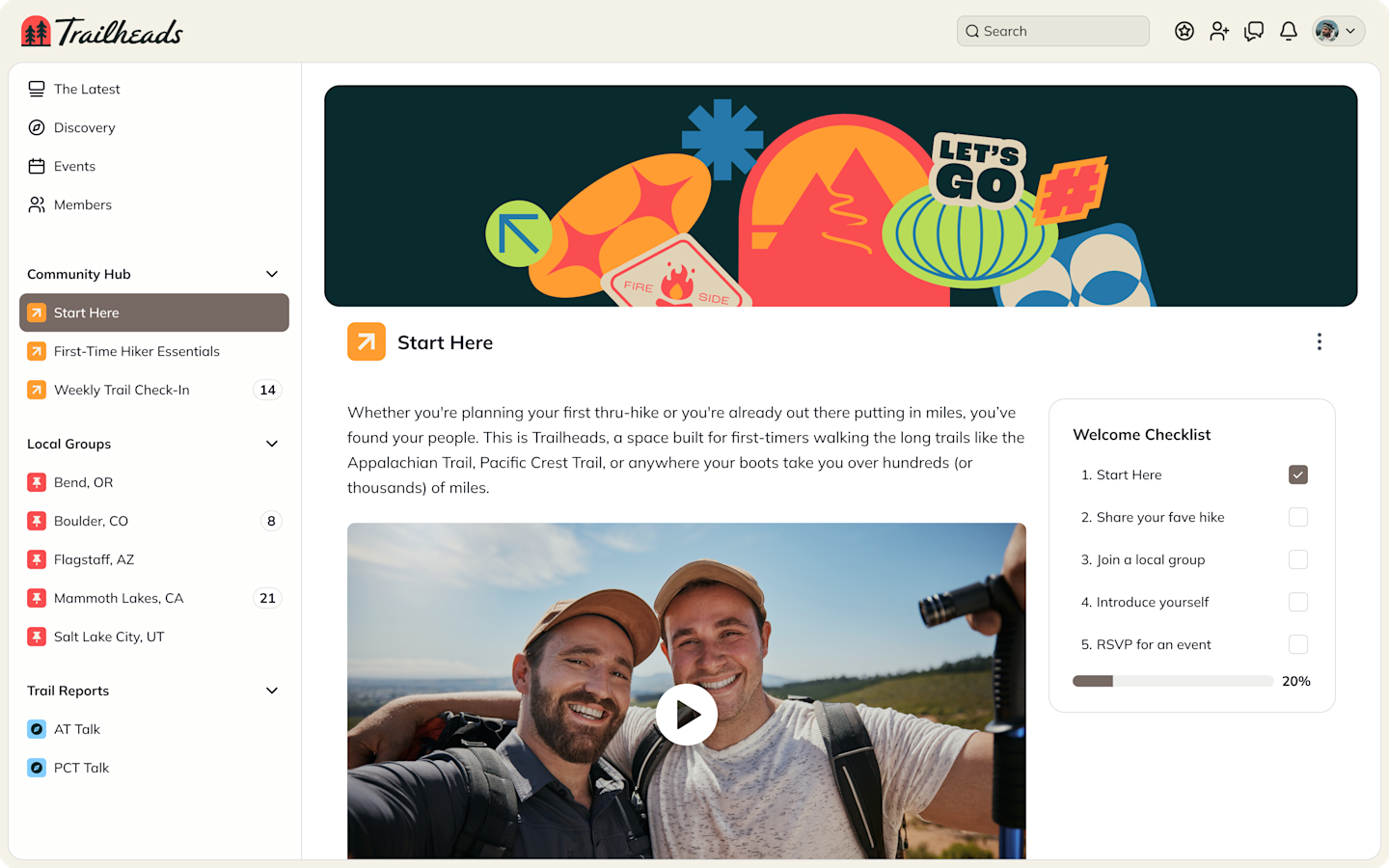
Communities and courses are a bit like peanut butter and jelly: they're good together.
Communities create the sort of natural learning environment that helps learners transform. And the course creates a structured learning path.
Right now we're big on live courses (AKA cohort based courses) for monetizing a community. Live courses create virtual learning environments where people can engage. But as a course-based business model, live instruction is awesome too.
Because you can sell a live course for a premium. Sure it's not exactly the elusive "passive income" everyone talks about. But if you want that, you can always sell the recording after (and that's next).
Live courses "fix" all the traditional challenges with pre-recorded courses: in which members can struggle to focus, find it lonely, and may not implement with no accountability.
Cohort courses address these challenges with live instruction and friendly peers.
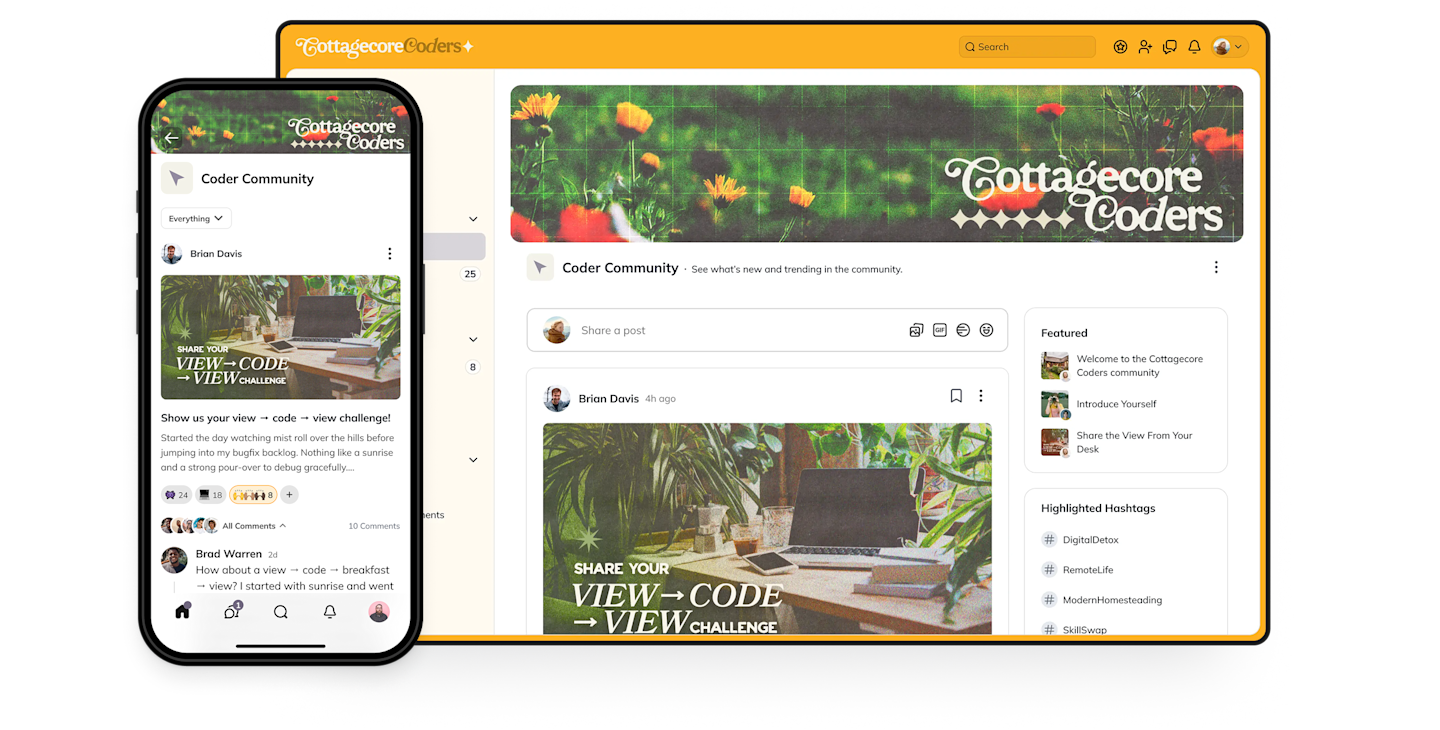
Advantages to live courses
Charge a premium for the live experience (and sell a recording after)
You can test the concept with a presale, and try something else if it doesn't have traction.
The students get accountability and encouragement, plus learn from other members.
You can adapt the material as you go to fit what members need to learn.
3. Offer pre-recorded courses
Creating an online course that's pre-recorded is still a great option too.
Pre-recorded (asynchronous) courses work well. When you put a community next to a pre-recorded course, you get an environment in which students can learn alongside others and be part of a conversation.
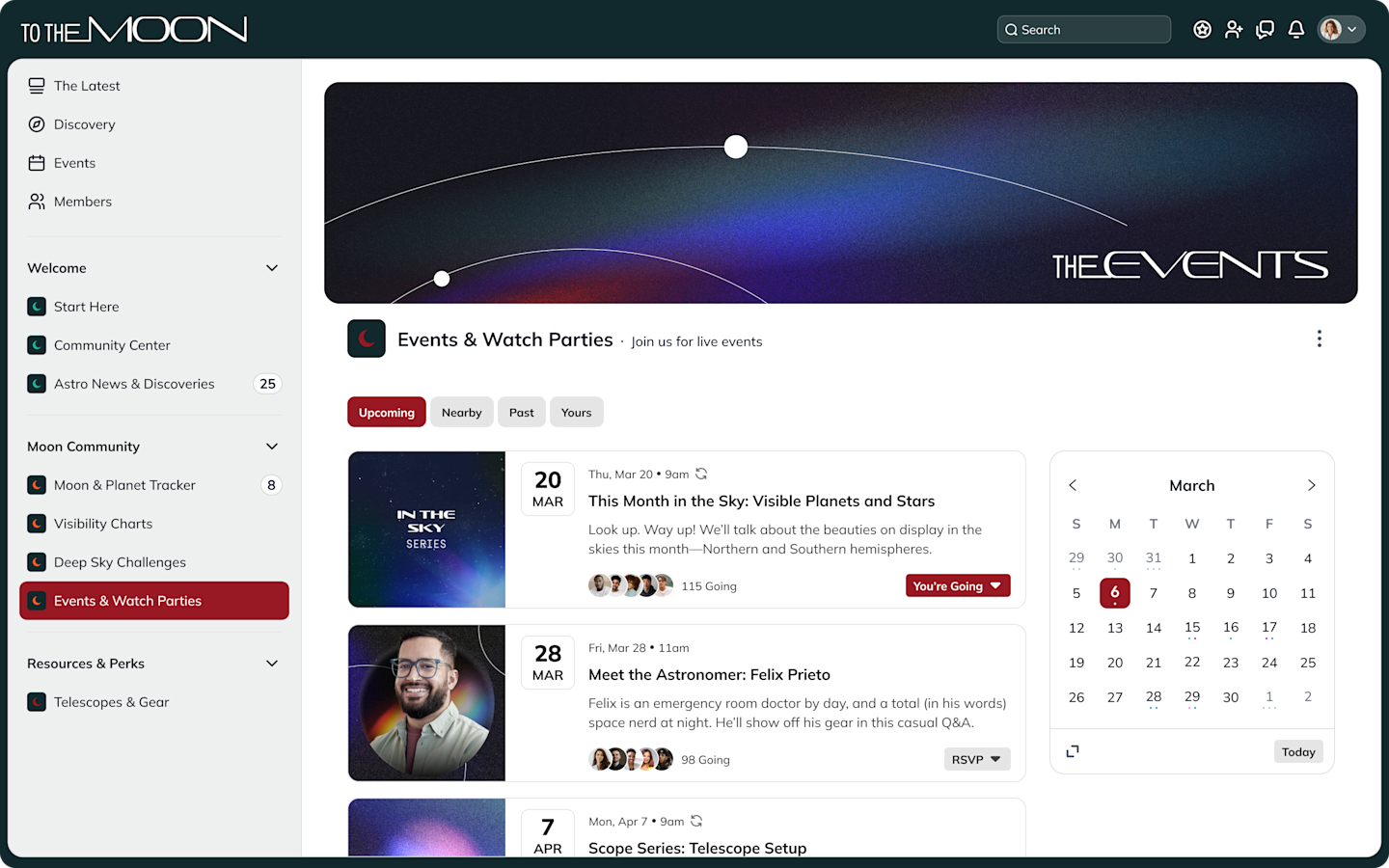
Advantages to pre-recorded courses
Can be more flexible for learners on a tight schedule.
Can be just as effective learning experiences for motivated learners.
You can sell it again and again, as many times as you want.
Live vs Pre-recorded courses
If you want a quick guide to figuring out if a live (AKA synchronous) OR a pre-recorded (AKA asynchronous) course is best for your students, here's a quick chart as a guide.
If Yes... | If No... | |
|---|---|---|
Are your students self-directed and autonomous? | Try Asynchronous | Try Synchronous |
Does your material ever change? | Try Synchronous | Try Asynchronous |
Do students require live feedback and support? | Try Synchronous | Try Asynchronous |
Do your students have limitations in joining through a live session, either because of learning style or lifestyle? | Try Asynchronous | Try Synchronous |
Will the students need to workshop ideas, have discussions, or work together? | Try Asynchronous | Try Synchronous |
4. Sell a product
Take a look around and you'll see that brand communities of all shapes and sizes monetize with products.
Nike runners community (and app) = shoes
Lego brand community = Lego
Quickbooks user community = bookkeeping software
We have a bigger list of brand community examples here.
Product-based communities are on the rise, and if you're creating a physical or digital product, it might be the right choice for you.
Advantages to selling products
The community becomes a flywheel for selling products.
The community manages customer service as users answer one anothers' questions AND help each other master the product.
Find a good community and product fit and each will drive the other: product will drive community memberships and memberships will drive sales.
5. Host virtual events
Hosting regular virtual events is another great way to monetize a community.

If you don’t want to charge for a membership to your community, then holding virtual events on different topics is a great way to monetize your community (or charge membership fees and upsell events).
You could:
Invite guest speakers
Provide live-coaching events
Hold networking sessions
Build a yearly conference
Or choose from a ton of other great virtual event ideas.
Advantages to virtual events
Capitalize on the energy and excitement of a time-bound event.
People can take part from almost anywhere, on their phones or computers.
Scale attendees without needing facilities.
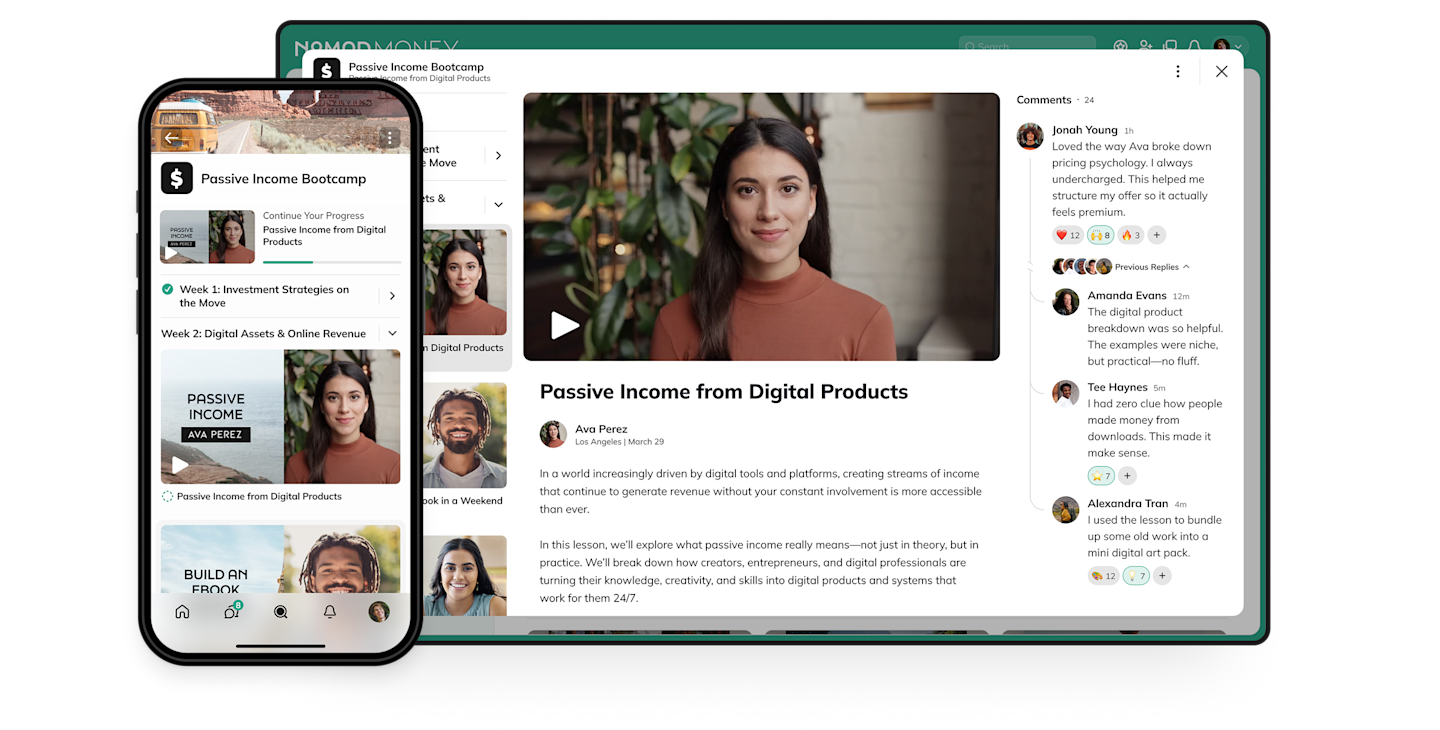
6. Host live events
Virtual events are cool, but so are live events. Bringing your community together for a live event creates a kind of energy that's unrivaled.
People love an excuse to attend a great event. Make it in an exotic location and it's even better.
With the right planning, you could use a recurring high-ticket live event to build your whole community business.
Advantages of live events
Create amazing experiences that people keep coming back for.
Charge a premium for a high-ticket experience.
Members feed off the live energy.
7. Mint social tokens
While it's sort of like a membership, creating community or social tokens is another way you can monetize.
A community token is a method of blockchain ownership that monetizes with token-gating instead of a membership payment.
Token-gating a community means that members have to purchase a community token for ownership. They can treat that token like an asset, potentially reselling it for a profit if the value of the community grows. The community Host could also take a cut of a resale if you want.
Advantages to token-gating
Potentially higher up-front revenue with the token-cost (this could mean lower recurring revenue).
Members can resell a token, potentially for a profit if demand for membership grows.
8. 1:1 Coaching
There are several great service businesses that work to monetize a community, and we're going to talk about coaching first.
Coaching lets you work closely with community members to help them reach specific goals (for example, in business or fitness).
Membership in a community can be included in a coaching package.
Advantages to coaching
Members can work 1:1 with the coach, but make friends and find encouragement and accountability in the community.
Coaching is usually a value-add above and beyond a community membership--letting you earn more per member.
9. Group Coaching
Or, you could try group coaching. A group coaching program can take community members through a journey of transformation together, centered around group sessions.
Members get great conversation, encouragement, accountability, and friendship--all while going through a transformation that matters to them.
And group coaching software should really focus on community-building anyway.
Advantages of group coaching
Scale your impact by helping more people at once.
Group members feed off each other and often see better results from group coaching.
It fits really well with a community.
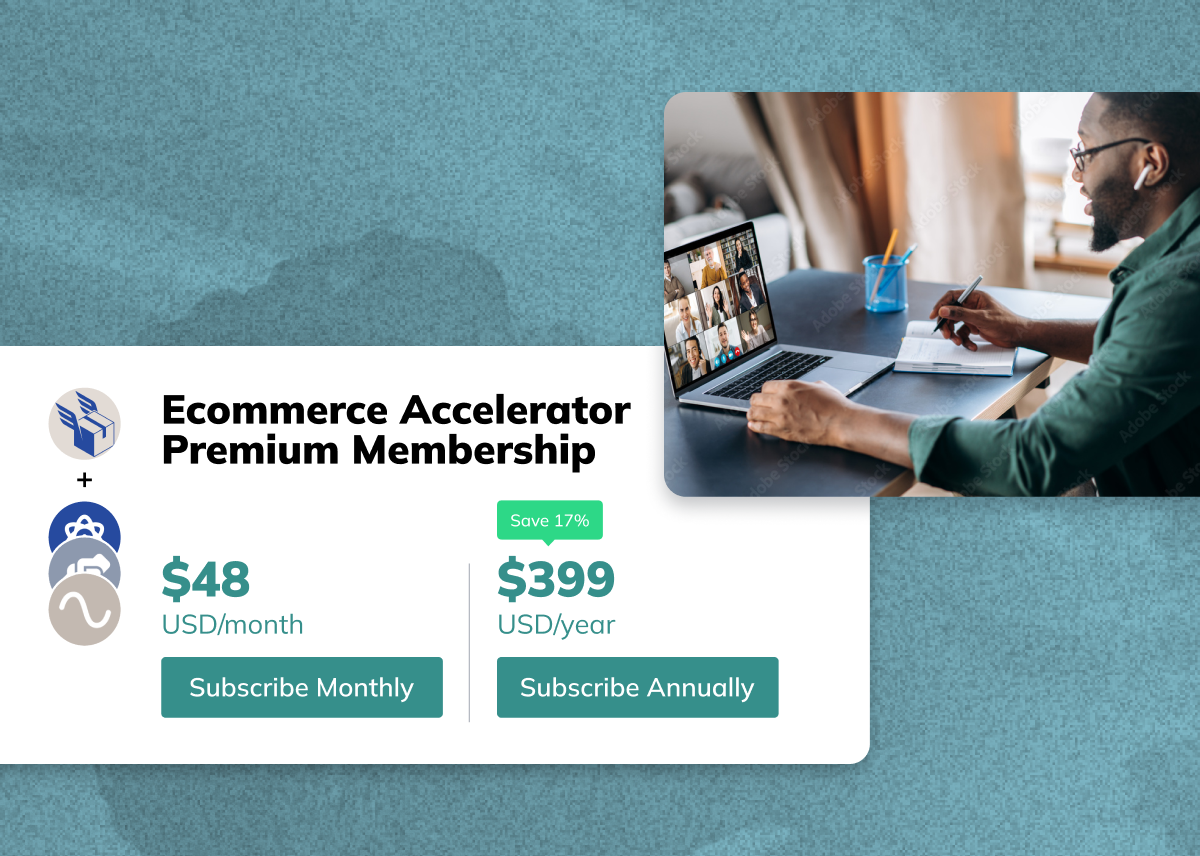
10. Masterminds
Mastermind groups are similar to group coaching. But while group coaching centers on a coach who has the expertise, in a mastermind group the leader facilitates a conversation of equals.
Successful mastermind groups work best with a facilitator (not a coach), since the learning experience is about the group members sharing their observations, questions, and experiences.
Advantages of a mastermind group
Charge a premium for a high-ticket experience.
It may not take much preparation on your part--but it will take great facilitating skills.
It's really easy for members to get value from the sessions.
11. Consulting
Starting a consulting business off the back of a community makes a lot of sense. A consultant can use a community to offer value and connect people together. It's also a positioning strategy, helping members see that you're the right person to solve a problem.
And that means there's a good chance they'll hire you when the time comes.
Advantages of a consulting business
High margins. You're bringing your expertise and your time and you can charge a lot for that.
A community mixed with consulting opens the possibility for productized services, in which you mix consulting with a product (e.g. a course).
12. An App
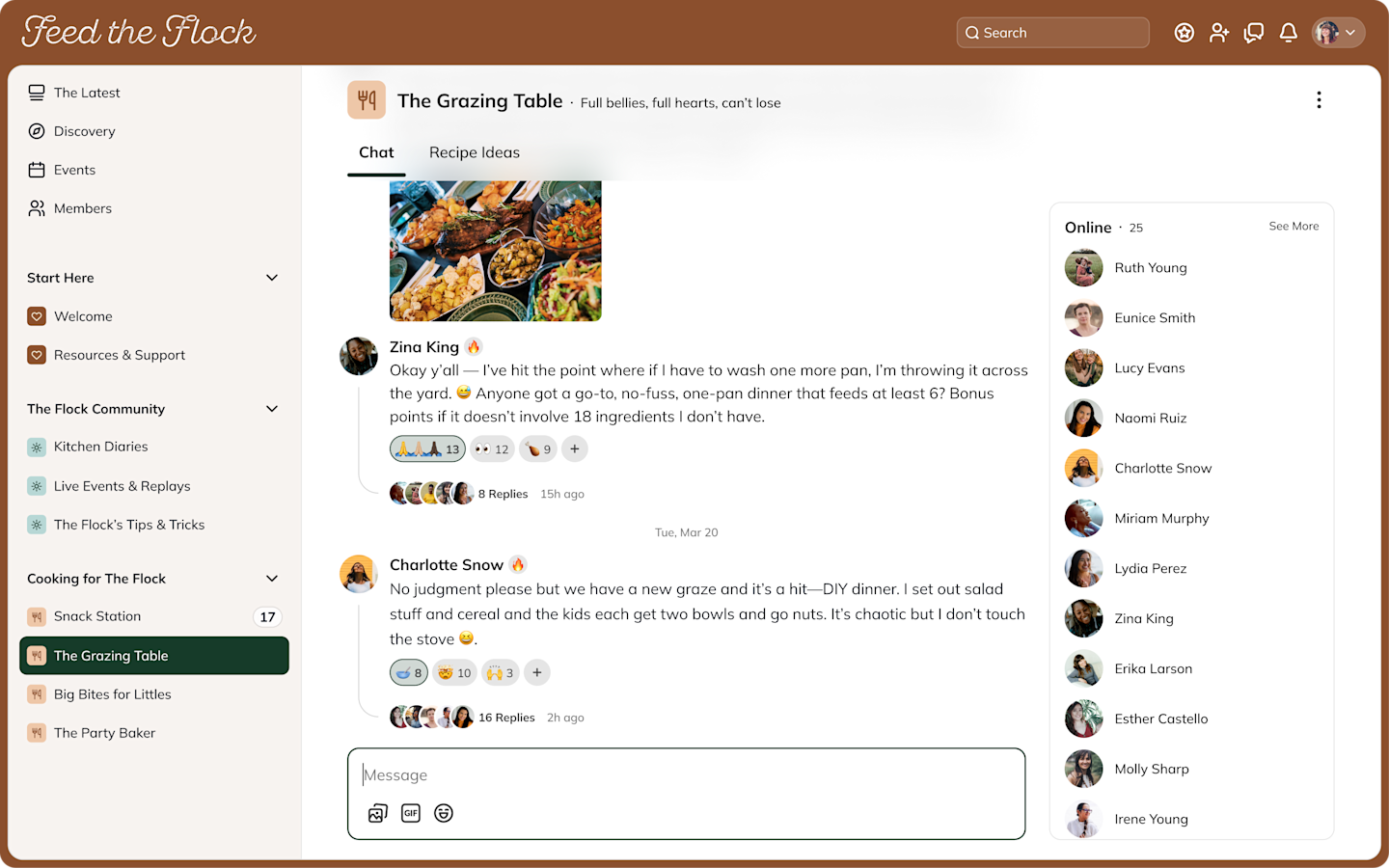
What about creating an app for your community? You can monetize the app with any of the strategies mentioned above, but members are getting a premium experience.
If you want your own community app, let us show you how!
Advantages
Create a high-ticket offer or membership and get it under your own brand in the app Store and Google Play Store.
Members get a more premium experience plus push notifications and easier access.
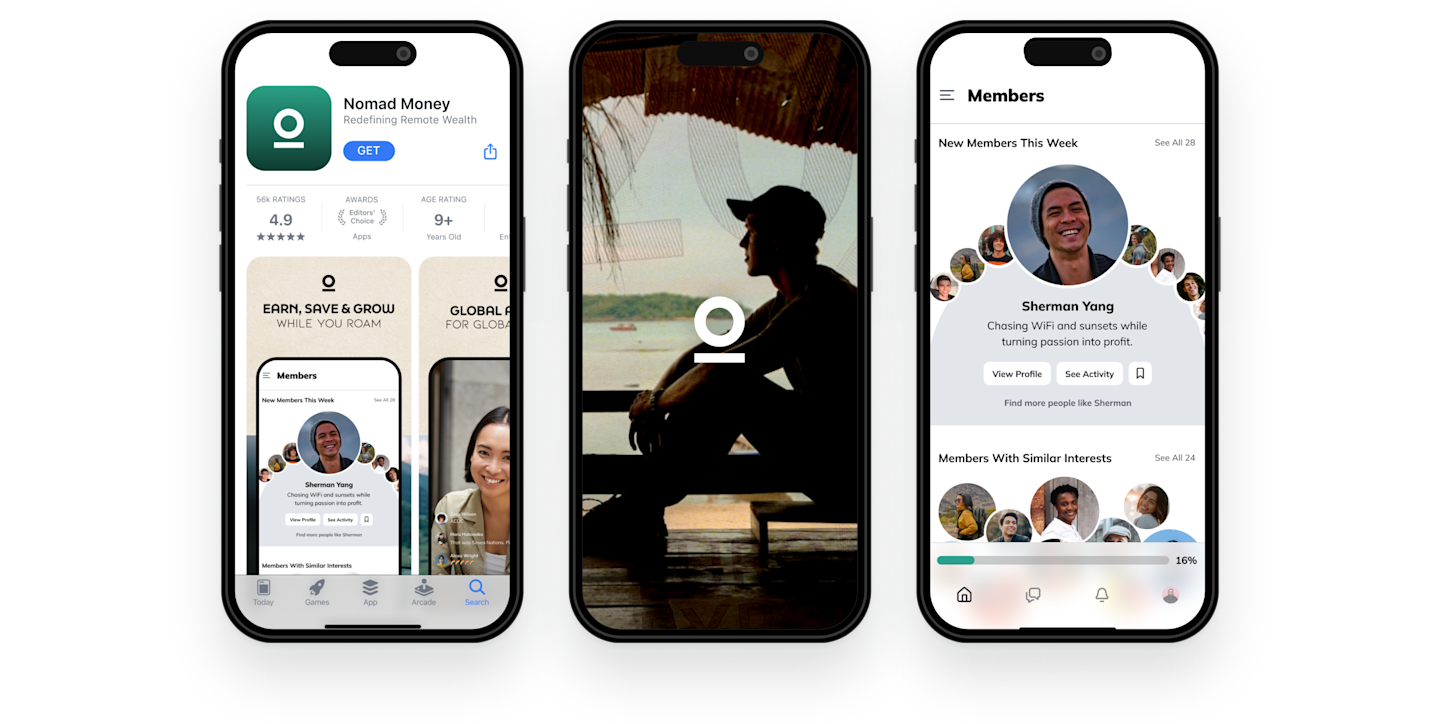
13. A physical business
What about a physical business? While it's not the go-to for a lot of communities, this is an area that's RIPE for monetization.
For example, every gym, dance studio, martial arts studio, or art studio that meets in a physical space can benefit from a digital community around their brand.
So instead of thinking global, why not think local? What about setting up a local business and using your community to boost it and grow engagement?
Advantages to a physical business
You don't need to compete with the world. You can focus on building a great local business.
Your virtual community can also meet IRL and build friendships.
There's great symbiosis between the community and the local business.
14. Newsletter
What about a newsletter? Having a regular subscription business can create recurring revenue, and if you love to write and share ideas, a newsletter might be just the ticket.
You could create a newsletter and charge for it, making community membership one of the perks.
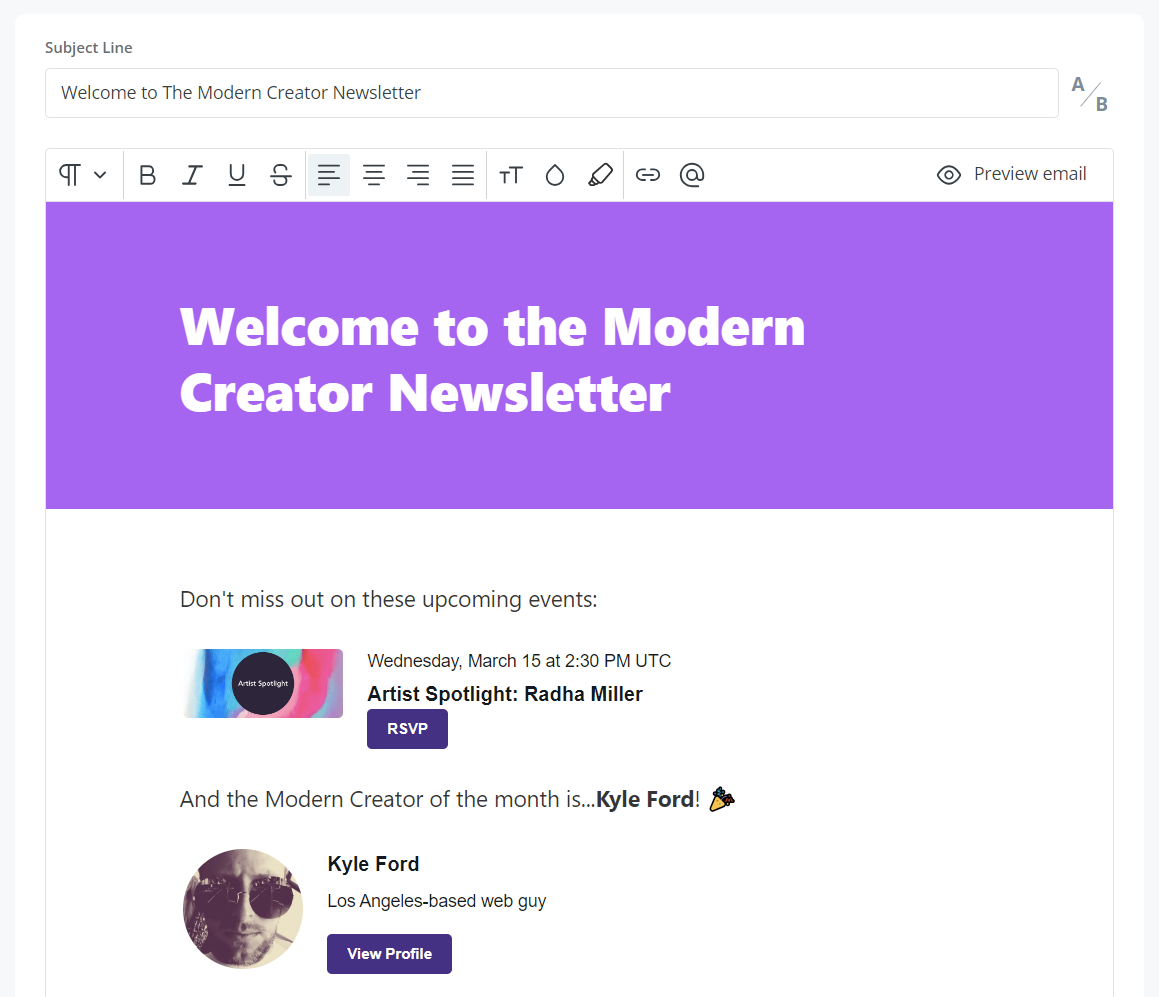
Advantages of creating a newsletter
Share ideas and expertise, and hopefully your love for writing.
Your ideas are in subscribers' inboxes--and newsletters get read.
It's easy to mix a newsletter and community with Mighty Networks' built-in ConvertKit integration.
15. Gifts
Finally, you could monetize a community with gifts or a "pay-what-you-can" approach.
It might mean a little less revenue, but it could be a way to grow some income for the work you love.
Note that there aren't many communities that this model is right for. For most, it's better to sell a membership--remember, people value what they pay for.
Advantages to optional support
Lets members pay what they can afford and signal their support with goodwill donations.
Come build on Mighty!
If you're ready to monetize your community, it's best to choose a platform with powerful community building tools.
That's why we'd love for you to try Mighty! Mighty's cultural software lets you bring together courses, community, content, and commerce in one place. And our flexible Spaces let you build the type of community YOU want, choosing from features like courses, live streaming, live events, discussions, short and more!
Mighty Networks is a leader in the world of online community building and was ranked as the #1 community management platform by G2!
On top of that, with a Mighty Network, you’ll be able to offer all of these on web, iOS, and Android. You can try Mighty free for 14 days--no credit card required.
Ready to start building your community?
Ready to start building your community?
Start a free 14-day trial to explore Mighty—no credit card required.
More like this
Join Mighty Community
Learn the principles of Community Design™ (and see them in action) alongside thousands of creators and entrepreneurs. It's free to join!

Online Courses
Creating a Course
Teaching a Course
Course Platforms
Selling a Course
Communities & Memberships
Community Platforms
Managing a Community
Building a Community
Growing a Community
Monetizing a Community
Creators & Entrepreneurs
Monetization
Content Creation
Starting a Business
Website Builders
Creating & Managing a Website
Events
Event Platforms
Hosting & Marketing Events
Branded Apps
Creating a Mobile App
Coaching Apps
Community Apps
Coaching
Mastermind Groups
Starting a Coaching Business
Coaching Platforms
Filter by Category
Online Courses
Communities & Memberships
Creators & Entrepreneurs
Events
Branded Apps
Coaching
Start your free trial
14 Days. No Credit Card Required.

















